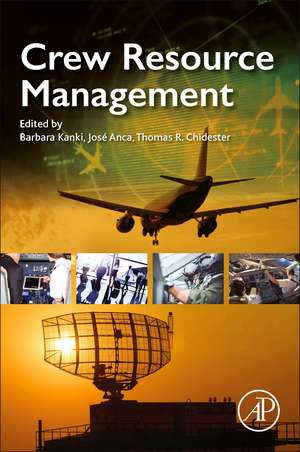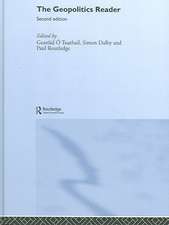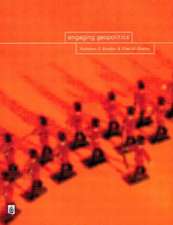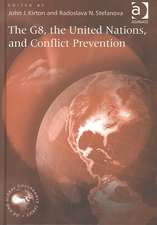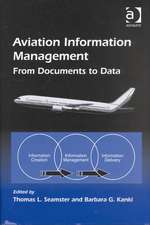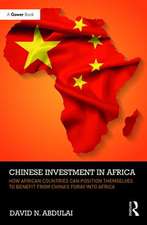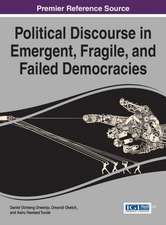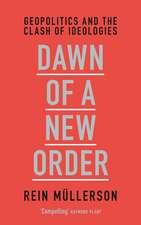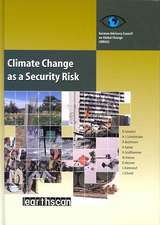Crew Resource Management
Editat de Barbara G. Kanki, José Anca, Thomas R Chidesteren Limba Engleză Paperback – 3 feb 2019
- Addresses the expanded operating environment--pilots, flight attendants, maintenance, etc.
- Assists developers and practitioners in building effective programs
- Describes best practices and tools for supporting CRM training in individual organizations
- Highlights new advances and approaches to CRM
- Includes five completely new chapters
Preț: 672.30 lei
Preț vechi: 874.94 lei
-23% Nou
Puncte Express: 1008
Preț estimativ în valută:
128.66€ • 139.71$ • 108.07£
128.66€ • 139.71$ • 108.07£
Carte tipărită la comandă
Livrare economică 15-29 aprilie
Livrare express 15-21 martie pentru 90.96 lei
Preluare comenzi: 021 569.72.76
Specificații
ISBN-13: 9780128129951
ISBN-10: 0128129956
Pagini: 664
Dimensiuni: 152 x 229 x 36 mm
Greutate: 0.88 kg
Ediția:3
Editura: ELSEVIER SCIENCE
ISBN-10: 0128129956
Pagini: 664
Dimensiuni: 152 x 229 x 36 mm
Greutate: 0.88 kg
Ediția:3
Editura: ELSEVIER SCIENCE
Public țintă
Training and safety managers in the aviation industry; CRM users in the aviation system; and human factors educators and researchers. Secondary market includes researchers in social psychology, human factors, communication studies, operations management, and safety and risk management.Cuprins
Part I: The Nature of CRM 1
1. Why CRM? Empirical and Theoretical Bases of Human Factors Training
2. Teamwork and Organizational Factors
3. Crews as Groups: Their Formation and Their Leadership
4. Communication and Crew Resource Management
5. Flight Crew Decision-Making
6. CRM (Nontechnical) Skills: A European Perspective
7. Crew Resource Management and Individual Resilience
8. Crew Resource Management, Risk, and Safety Management Systems
Part II: CRM Training Applications
9. The Design, Delivery, and Evaluation of Crew Resource Management Training
10. Line Oriented Flight Training: A Practical Guide for Developers
11. Line Operations Simulation Development Tools
12. Crew Resource Management and Line Operations Safety Audit
13. Maintenance Resource Management for Technical Operations
14. Flight and Cabin Crew Teamwork: Improving Safety in Aviation
15. The Migration of Crew Resource Management Training
Part III: CRM Perspectives
16. A Regulatory Perspective
17. A Regulatory Perspective II
18. The Accident Investigator’s Perspective
19. The Military Perspective
20. Cultural Issues and Crew Resource Management Training
21. Airline Pilots, Training, and CRM in Today’s Environment
22. The Future of CRM
1. Why CRM? Empirical and Theoretical Bases of Human Factors Training
2. Teamwork and Organizational Factors
3. Crews as Groups: Their Formation and Their Leadership
4. Communication and Crew Resource Management
5. Flight Crew Decision-Making
6. CRM (Nontechnical) Skills: A European Perspective
7. Crew Resource Management and Individual Resilience
8. Crew Resource Management, Risk, and Safety Management Systems
Part II: CRM Training Applications
9. The Design, Delivery, and Evaluation of Crew Resource Management Training
10. Line Oriented Flight Training: A Practical Guide for Developers
11. Line Operations Simulation Development Tools
12. Crew Resource Management and Line Operations Safety Audit
13. Maintenance Resource Management for Technical Operations
14. Flight and Cabin Crew Teamwork: Improving Safety in Aviation
15. The Migration of Crew Resource Management Training
Part III: CRM Perspectives
16. A Regulatory Perspective
17. A Regulatory Perspective II
18. The Accident Investigator’s Perspective
19. The Military Perspective
20. Cultural Issues and Crew Resource Management Training
21. Airline Pilots, Training, and CRM in Today’s Environment
22. The Future of CRM
Recenzii
"This third edition (now edited by Kranki, Anca and Chidester) has been extensively reviewed and updated and reflects advancements made in the conceptual foundation of CRM, as well as five new chapters discussing well-researched methods and approaches to applying CRM in addition to evolving concepts of the future. This new edition retains its character of enhancing flight safety by applying CRM principles but has emerged nicely into the new generation of training, as well as the operational and regulatory environments that are continually evolving." --Aerospace
